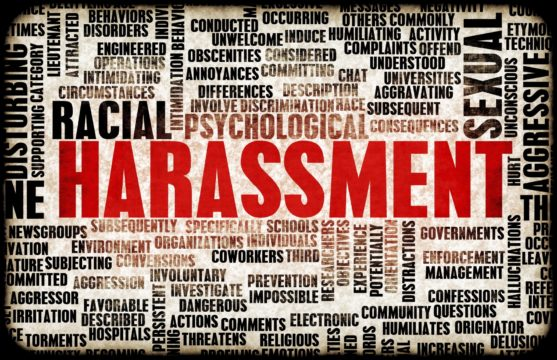Author: Tracey Young. (November 30, 2020). Charter Rights: Sec. 2 - Fundamental Freedoms: Conscience, Religion, Peaceful Assembly & Association. Canadian Advocacy Centre for Health, Safety & Justice. Retrieved from: https://canadianadvocacycentre.blogspot.com/2020/11/charter-rights-sec-2-fundamental.html.
Disclaimer: I am not a lawyer. I am a public interest advocate, writer, and publisher. If you have additional questions about these legal matters, I suggest that you seek legal advice from a lawyer practicing in your province, or territory. You may be able to find free legal advise by contacting a Pro Bono organization in your province/territory. See a list here.
Introduction
In this article, I will provide a brief introduction to Sec. 2 of the Canadian Charter of Rights and Freedoms as it pertains to the constitutional right to freedom of conscience and religion, peaceful assembly and association. I also provide information on Sec.
What is the Canadian Charter of Rights and Freedoms?
The Canadian Charter of Rights and Freedoms sets out those rights and freedoms that Canadians believe are necessary in a free and democratic society.
The Charter is one part of the Canadian Constitution. The Constitution is a set of laws containing the basic rules about how our country operates. For example, it states the powers of the federal, and provincial and territorial governments in Canada.
Guarantee of rights and freedoms – section 1
1. Canadian Charter of Rights and Freedoms guarantees the rights and freedoms set out in it subject only to such reasonable limits prescribed by law as can be demonstrably justified in a free and democratic society.
Fundamental freedoms – section 2
2. Everyone has the following fundamental freedoms:
- freedom of conscience and religion;
- freedom of thought, belief, opinion and expression, including freedom of the press and other media of communication;
- freedom of peaceful assembly; and
- freedom of association.
Under section 2 of the Charter, Canadians are free to follow the religion of their choice. In addition, they are guaranteed freedom of thought, belief and expression. Since the media are an important means for communicating thoughts and ideas, the Charter protects the right of the press and other media to speak out. Our right to gather and act in peaceful groups is also protected, as is our right to belong to an association like a trade union.
These freedoms are set out in the Charter to ensure that Canadians are free to create and express their ideas, gather to discuss them and communicate them widely to other people. These activities are basic forms of individual liberty. They are also important to the success of a democratic society like Canada. In a democracy, people must be free to discuss matters of public policy, criticize governments and offer their own solutions to social problems.
Source: Government of Canada. Guide to the Canadian Charter of Rights and Freedoms. Retrieved from: https://www.canada.ca/en/canadian-heritage/services/how-rights-protected/guide-canadian-charter-rights-freedoms.html.
__________________________________________________________
Reverends Speak Out On Cost of COVID-19
Bright Light News. (Dec. 7, 2020). Youtube. Retrieved from: https://www.youtube.com/watch?v=mR2oW5F-VC8.
"Indeed, for religious groups, freedom of peaceful assembly is not the only Charter freedom that has felt the impact of COVID-19 restrictions. Freedom of religion is also at stake as a result.
While religious freedom consists of far more than the act of communal worship, there is little doubt that worship itself – facilitated by peaceful assembly – is central to this constitutionally-guaranteed freedom. Necessary compromises during this pandemic have come at great personal cost to many people of faith as they live through significant limitations on two fundamental Charter freedoms.
The fact remains that, on the whole, policymakers have been slow to acknowledge the very real impact of the lockdown on religious communities. While Charter claims are not simple matters of keeping score, many Canadians are still facing significant and simultaneous limits on their religious freedom and their freedom to peacefully assemble. This is a reality that we can't afford to ignore."
Source: Kinsinger, K. and Bird, B. (2020). Government walking a constitutional tightrope as restrictions on peaceful assembly stretch on. CBC News. Retrieved from: https://www.cbc.ca/news/opinion/opinion-freedom-of-assembly-rights-covid-19-1.5604491.
Criminal Code of Canada: Obstructing or violence to or arrest of officiating clergyman
Obstructing or violence to or arrest of officiating clergyman
176 (1) Every person is guilty of an indictable offence and liable to imprisonment for a term of not more than two years or is guilty of an offence punishable on summary conviction who
(a) by threats or force, unlawfully obstructs or prevents or endeavours to obstruct or prevent an officiant from celebrating a religious or spiritual service or performing any other function in connection with their calling, or(b) knowing that an officiant is about to perform, is on their way to perform or is returning from the performance of any of the duties or functions mentioned in paragraph (a)
(ii) arrests them on a civil process, or under the pretence of executing a civil process.
Marginal note: Disturbing religious worship or certain meetings






No comments:
Post a Comment